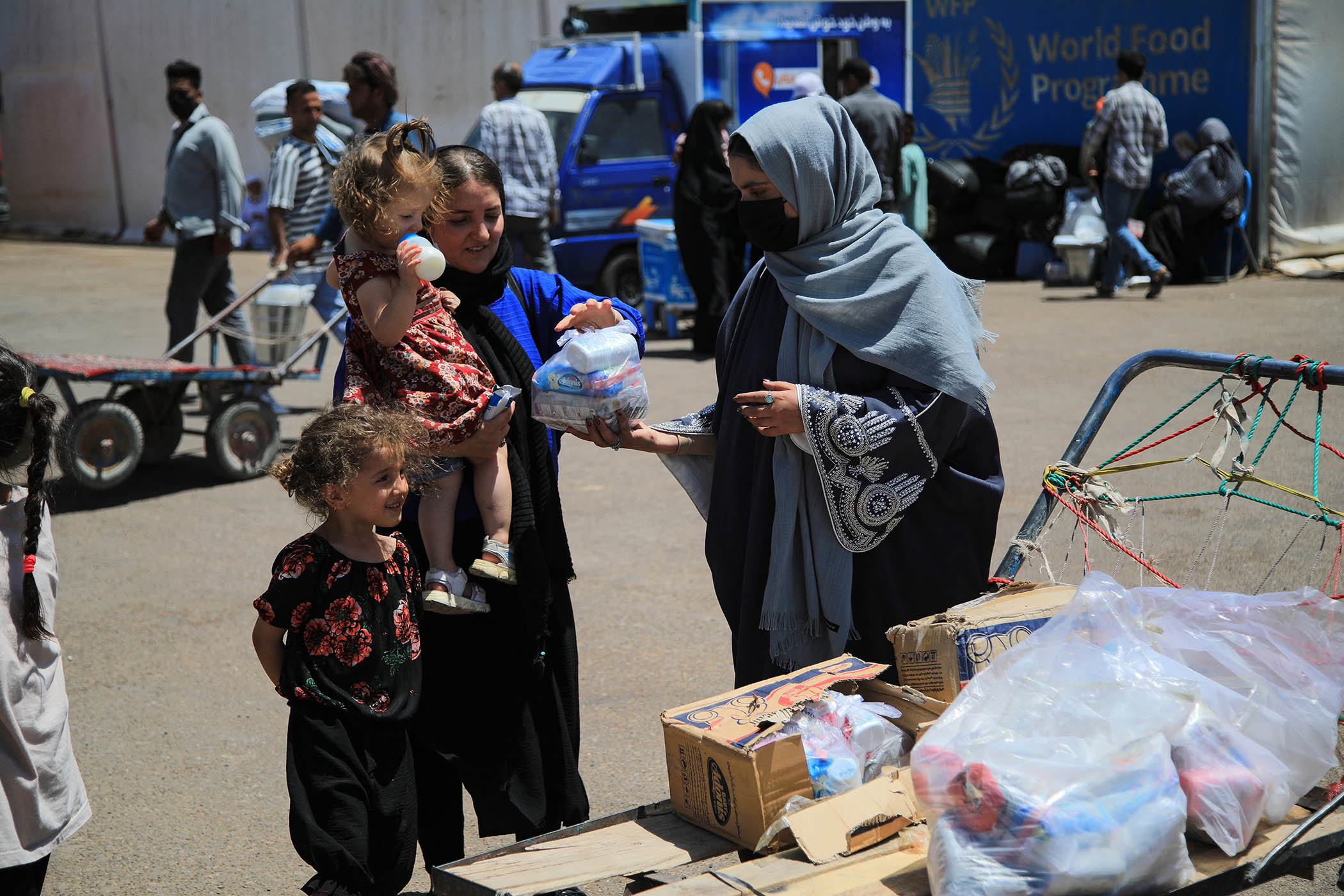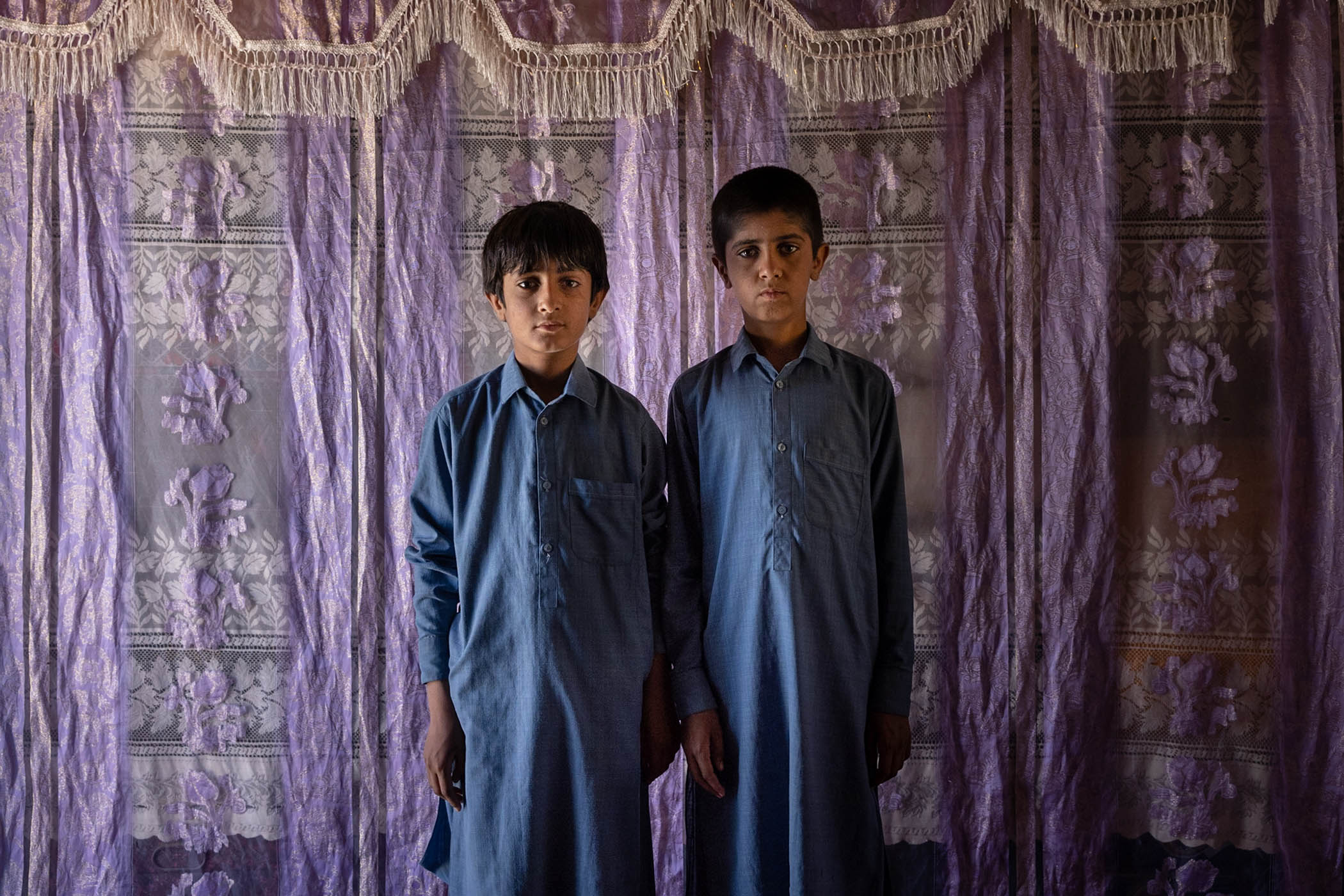In the deserts of western Afghanistan, the world’s largest deportation programme is under way. Since the start of this year more than 1.5 million Afghans have been expelled from Iran and have arrived at the reception centre at the Islam Qala border crossing, a collection of shabby low-rise buildings and tents where returnees receive essential healthcare and aid.
At the height of the returns this summer, the centre was receiving 20,000 people each day, almost half of whom are women. Five months on, these women are caught in a stand-off between the Taliban and international aid agencies forced to choose between delivering aid according to the dictates of the world’s most misogynistic government, or not delivering aid at all.
While the Taliban runs Islam Qala and provides returnees with necessary documents and small stipends, humanitarian services are provided by a plethora of international NGOs funded by donors including the UK’s Foreign, Commonwealth and Development Office (FCDO), creating a delicate balance of power between the UN and western governments and a brutal theological regime that is almost universally condemned and isolated for its human rights abuses, particularly against girls and women.
Earlier this month, the Taliban’s Ministry for the Propagation of Virtue and Prevention of Vice, the body responsible for enforcing crushing restrictions on women, decreed that foreign female aid staff are banned from working at the Islam Qala centre, part of the group’s widening effort to exclude women entirely from public life.
The decision came days after the district authorities in Herat province, where Islam Qala is located, ruled that all female staff and patients must wear the full burqa in order to enter public health facilities.
The move initially prompted the UN to suspend services at Islam Qala, stating: “Without female staff, we cannot collectively serve returning women and children under conditions of dignity and respect.”
Humanitarian sources say NGOs are effectively legitimising the Taliban’s edict
Humanitarian sources say NGOs are effectively legitimising the Taliban’s edict
However, The Observer has learned that NGOs, including Save the Children, a British organisation that receives funding from the FCDO, pushed back against the suspension to continue working at the reception centre, despite being unable to provide the vast majority of services for women – a move that humanitarian sources say is effectively legitimising the Taliban’s edict. According to a source within the operations, the FCDO was also pushing to continue operations at Islam Qala.
The UK’s formal relations with the Taliban are almost non-existent. Diplomatic relations were not restored after 2021, when the Taliban took control of the country, but the UK, like the EU and US, believes that there is “no alternative to engaging pragmatically with the current administration of Afghanistan”. Much of that engagement is in humanitarian work: the UK was the biggest donor to Afghanistan in 2024, allocating £330m to the country.
That hands the British government some leverage with the Taliban. Afghanistan is one of the world’s poorest countries, two-thirds of its population living in poverty, and it is reliant on foreign aid. In September, a British couple detained by the Taliban, Peter and Barbie Reynolds, were handed over to Richard Lindsay, the UK’s special envoy to Afghanistan, after seven months of negotiations.
A spokesperson for the FCDO said: “Women must be able to play a full role in the aid response in Afghanistan. Female staff are essential to the safe and principled delivery of aid.
Newsletters
Choose the newsletters you want to receive
View more
For information about how The Observer protects your data, read our Privacy Policy
“The UK government condemns the ban on female staff at the Islam Qala reception centre. We fully support the UN in the suspension of reception centre aid activities whilst negotiations continue to enable women to start working again.”
On Friday morning, the UN, having failed to persuade the Taliban to lift the ban on female members of staff, despite extensive negotiations and under pressure from the NGOs, announced that it is rescinding its suspension and resuming “life-saving” services in Islam Qala.
In practice, that means a hugely reduced service. More than 100 female staff were working at Islam Qala before the new rule was applied. Now, only three Afghan women – a doctor, a nurse and a midwife – are allowed to work there. Other non-medical services, including nutrition, can no longer be provided for women at the facility.
A humanitarian official at the Islam Qala border warned that accepting the Taliban’s rules in Herat will prompt the group to enforce them across Afghanistan. “This will cause a lot of harm to the humanitarian work at the border. Even if we have 50,000 women coming through, we only have three women to serve them,” the official said.
“[Accepting the Taliban’s conditions] is very dangerous because potentially it sets a precedent. The other risk is that we have excluded 50% of the population from receiving services, and that breaks the humanitarian principles that we serve everyone and are impartial. If we do this then we are not impartial and we are not independent.”
In a statement, Save the Children said it suspended its operations on 3 November, in line with the UN’s decision, and resumed “limited operations” in the health clinic only on 13 November alongside other agencies and the UN.
The statement added: “This joint clinic has both female and male health workers from multiple humanitarian organisations, including from Save the Children.
"Save the Children is strongly advocating for our operations to fully resume at the Islam Qala border with female and male staff. [We remain] committed to upholding and implementing our humanitarian principles, while making sure that our programmes continue to operate in compliance with local laws.”
Zarifa Ghafari, the former mayor of Wardak province, who is now working as a human rights advocate in exile, warned that any foreign organisation ceding to the ban on female aid staff at Islam Qala “sends the message that the world will eventually adjust to the Taliban’s demands. That is dangerous, and it is wrong.”
•
This article was amended on 18 November to add a statement from the FCDO and to clarify the position of Save the Children.
Photograph by Mohsen Karimi/AFP via Getty Images


